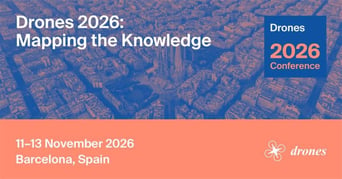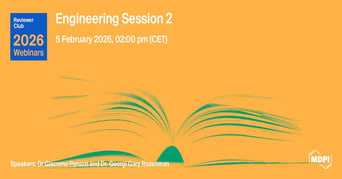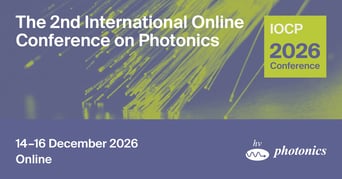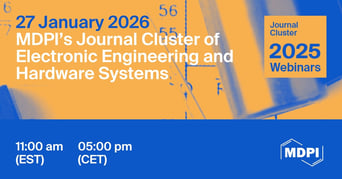- 2.6Impact Factor
- 6.1CiteScore
- 17 daysTime to First Decision
News & Conferences
Latest News & Announcements
Latest Conferences
Propose a Conference Collaboration
Promote and publicise your upcoming conference with MDPI.
All News & Conferences
News & Announcements
MDPI’s Open Access Network Reaches 1,000 Institutions Worldwide
18 February 2026
News & Announcements
Meet Us at the 15th World Conference of International Society for Gerontechnology (ISG 2026), 26–29 March 2026, Canada
12 February 2026
News & Announcements
Electronics | Highly Cited Papers in 2025 in the “Computer Science & Engineering” Section
11 February 2026
News & Announcements
Meet Us at the 2026 IEEE 21st International Conference on Nano/Micro Engineered and Molecular Systems, 17–21 April 2026, Chengdu, China
10 February 2026
MDPI Conference
Drones 2026: Mapping the Knowledge
11 - 13 November 2026
News & Announcements
Meet Us at the International Workshop on Antenna Technology 2026, 25–27 March 2026, Liverpool, UK
5 February 2026
News & Announcements
Acknowledgment to the Reviewers of Electronics in 2025
4 February 2026
News & Announcements
MDPI INSIGHTS: The CEO's Letter #31 - MDPI 30 Years, 500 Journals, UK Summit, Z-Forum Conference, APE
2 February 2026
5 - 5 February 2026
News & Announcements
MDPI Reviewer Club Webinar 2026 | Engineering Session 2, 5 February 2026
29 January 2026
14 - 16 December 2026
of 39











.jpg?v=1769683508)

